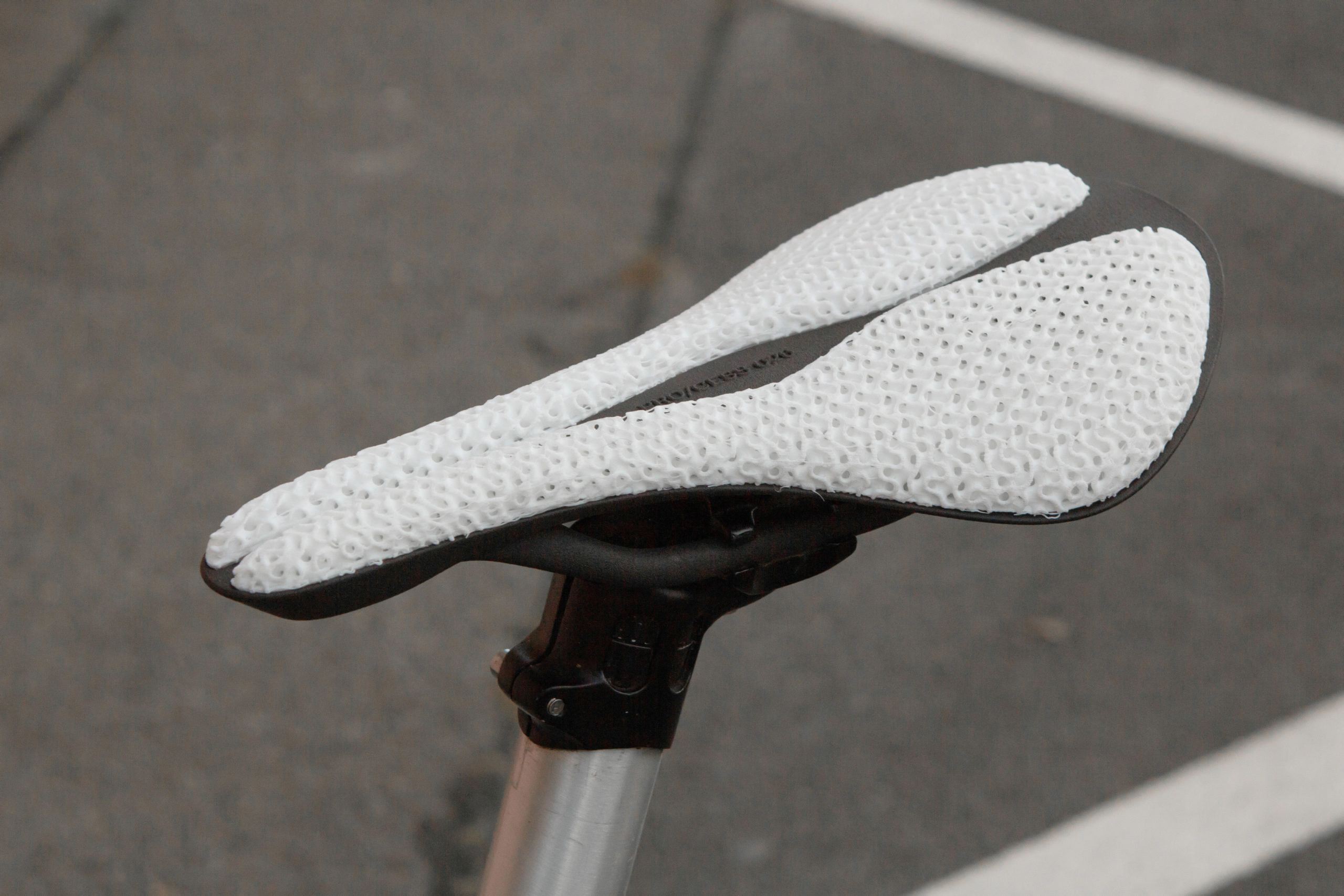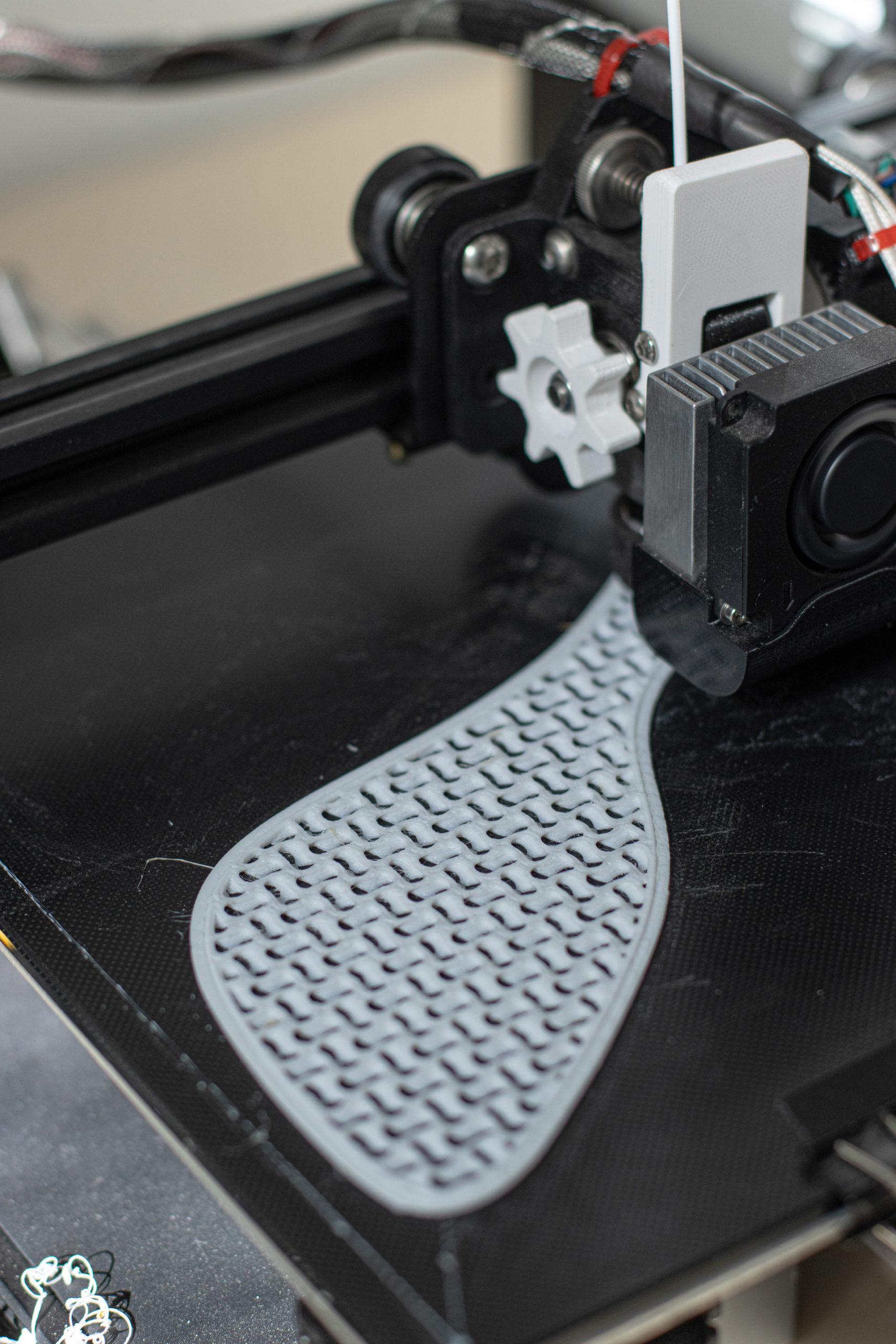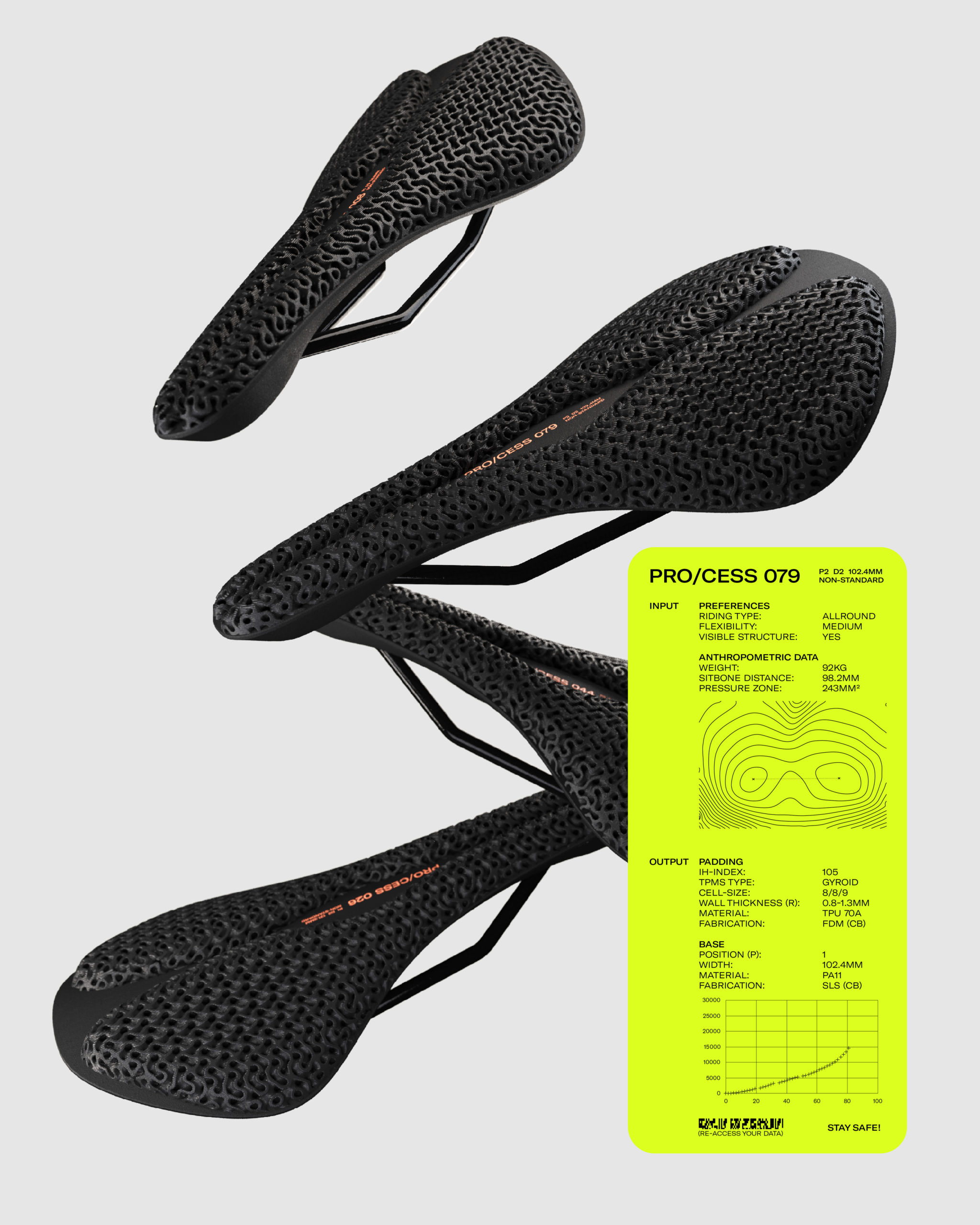PRO/CESS - rejecting gender standards

Useful information
- Team members
- Tim Schuetze
- Country
- Germany
- Keywords
- gender-sensitive design additive manufacturing 3d-printing genderdesign customization image recognition structure from motion open source bike seat bike saddle
Short Description
PRO/CESS is a gender-sensitive, fully customised and additively manufactured bike saddle.
Detailed Description
In contrast to determined products, the concept embraces an open source process that focuses on the particular needs of users and rejects gendered standards. It follows the principle of input/algorithm/output. The input is formed by individual data of the users, gathered decentrally with an app. Utilizing simple image recognition technology, a 3D model of the butt is created. Corresponding ergonomic data is then derived and additional preferences are entered. Based on this, the algorithm adjusts shape, size, and padding of the saddle in the CAD model and is constantly optimised with new data sets. Print data for FDM and SLS printing is then generated and available as output. Finally, users have the choice of printing the saddle themselves, sharing the order in the maker community or ordering it from a microfactory.
PRO/CESS is fluid in its form and can react agilely to feedback, overcoming standards of gender differentiation and empowering non-binary perspectives.
Project Details
- Does your design take social and cultural challenges and human wellbeing into consideration?
As an implementation of the previous design-theoretical study "gender affairs - empowering gender equality and diversity through gender-sensitive design", the project takes on a discursive dimension. Radical individualisation promotes a future in which user groups are neither semantically excluded by a binary, heteronormative gender conception nor practically excluded by supposed gender standards. It is intended to encourage discourse and to question the way in which gender is (not) understood in design.
On a very specific level, the project also promotes a decentralised and community-based open source product manufacturing that is more resilient, independent and ultimately, through the participation of many, more dynamic.
- Does your design support sustainable production, embodying circular or regenerative design practices?
PRO/CESS aims for sustainable manufacturing, eliminating overproduction and obsolescence through made-to-order fabrication and promoting durability through induvidualisation. It is completely additively manufactured and requires only a minimum of post-processing. Therefore, the manufacturing effort and the required know-how are likewise minimal.
- Does your design use principles of distribution and open source?
In the sense of prosumerism, there is free access to the generated 3D data, which can be downloaded as an STL file including manufacturing instructions and produced independently. Alternatively, the order can also be placed in the network of FabLabs, print farms and makers. Users who want to get their product as quickly as possible also have the option of having their own saddle made in a PRO/CESS microfactory. The purchase price finances not only the product but also the service for the free open source version.
- Does your design promote awareness of responsible design and consumption?
Our designed environment is strongly marked by gender-differentiated products. These, as well as supposedly "unisex" versions, not only fail to recognise the diversity of human identities, but ultimately also contribute to the preservation of patriarchal norms and hierarchies. In a product field conventionally conceived in " male " and " female " standards, PRO/CESS represents a gender-sensitive approach that considers physical characteristics and preferences independently of gender identity and is consciously not based on any standards.
Images


